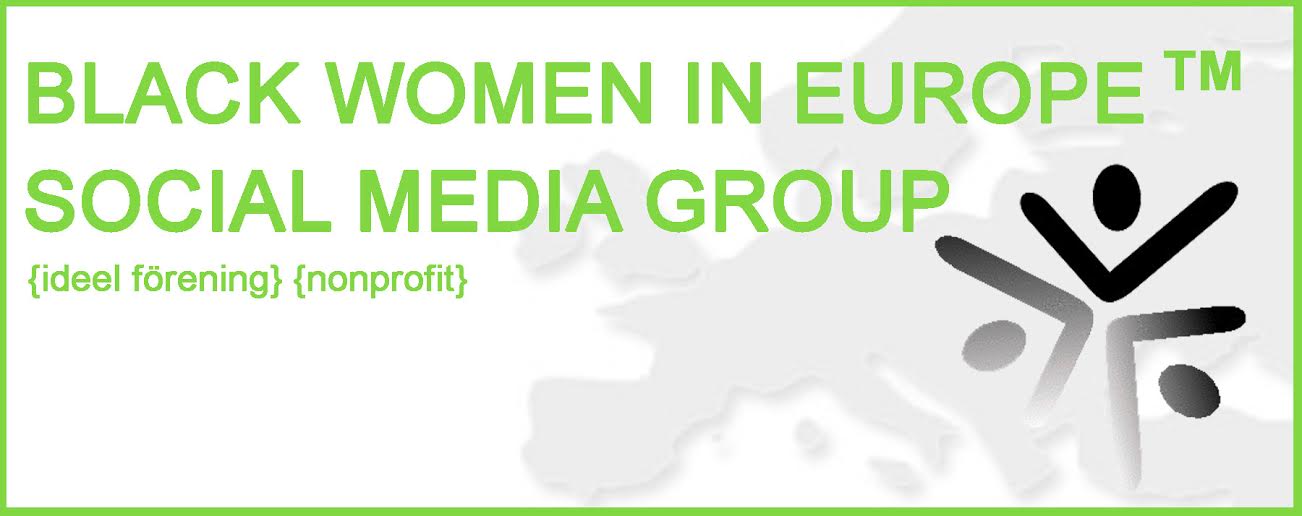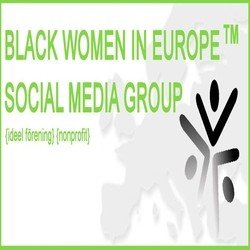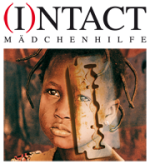Maisha e.V. ? African Women in Germany
Who we are
We are an organization of African women in Germany. Our aim is to assist African women?living in Germany. We are a self-help group and we assist each other in crises, in dealing with?German authorities and the society in general. We address issues like childcare, jobs, daily?problems, health and psychological problems. The concept is to empower each other to?become a proud and active part of German society but at the same time remain firmly rooted?in our culture and African background. We encourage each woman to become active in her?own community.
History
We were founded in 1996 by Virginia Wangare Greiner and 6 other people, who thought it was about?time that African women speak out for themselves. Virginia has been our General Manager since.?In 2002 Maisha got the Integration Award (Integrationspreis) of the City of Frankfurt.?In 2006 Virginia was awarded the German Federal Cross of Merit (Bundesverdienstkreuz) .
Since 2006 Maisha holds the chairmanship of the Organisation European Migrant Women in Belgium.?In 2010 Maisha was awarded the Gabriele Stecker Preis by the organization Soroptimist.?Internal Organization?We are registered in Frankfurt am Main and are officially certified as non-profit organization.
According to our statutes we elect a new board of directors once a year. The present board?2012 consists of 6 women and one man. The position of a chairwoman is held by Elizabeth?Gavi.?Maisha has 550 members. Apart from the General Manager it has no salaried executives or?employees but many volunteers, Christa the office secretary the most active among them.
Core Project
Our daily job is being a low level clearing office for the International Clinic (Internationale?Sprechstunde) at the Frankfurt Health Department by the Frankfurt Department of Women?s?Affairs. We are called on by Africans (and lately East-Europeans and other nationalities) who?want to get an appointment with the clinic and we have to process their paperwork. While
they are with us we have to deal with numerous other problems concerning housing problems,?alien status, discrimination, health, nutrition, childcare and other issues. Our African clients come from all African nations, Eritrea and Nigeria being high on the list. In the last few years?we had a steady rise of pregnant African women searching our help.
FGM - What we do for Africans
One of our current projects is prevention work against female mutilation in Germany. We are?aware of a growing concern in society about this issue, but the German organizations who?dealt with it are not representing the African women the way we would represent ourselves.?At the same time they are not reaching many African women.?We offer preventive counselling to African families. One way is information about the legal?situation in Germany. On this background we want to convince mothers to stop the practice of?FGM. We want to keep them from being prosecuted and expelled from Germany. ?Instead we want to support them in finding ways to alter this tradition, to preserve its valuable elements?and negotiate a creative compromise by finding non-violent ways of performing the?ceremony.?We work with African girls and with their mothers. Contrary to other organizations we want
nurses, midwifes healers and circumcisers to play an important role in the concept of altering?the tradition.
Cooperation with German groups and institutions
We work together with schools, community agents, government offices, police and the?Ministry of Family Affairs, as well as with other German organizations who also deal with?FMG. We teach them for example how to communicate with the victims of this practice in?sensible and respectful ways. We lecture about FGM, this involves giving the agents insights?into the cultural background of the women and what these traditions mean for them. We offer
trainings for different institutions and give interviews on radio and TV.
Multipliers
We want to empower other African women to become active multipliers for our approach in?their communities throughout Germany and Europe. They should be enabled to inform about?FGM-prevention in combination with AIDS-prevention. Also we are in contact with?organizations in Africa to exchange experiences, to learn from each other and see how they?work in respect to FGM.
Funding and Partners
Our longtime funds are mainly from
? City of Frankfurt am Main ? Public Health Department
? City of Frankfurt am Main ? Department for Women?s Affairs
The FTV 1860 (Sports Club), helps us by offering us free office space
Our partners are:
? Federal State of Hesse ? Department for Justice, Integration and Europe
? PendaKania (NGO)
? Africa Diaspora in Europe (NGO)
? Amnesty International / End FGM European Campaign
? Terre des Femmes
? LebKom (NGO)
? European Network of Migrant Women (NGO)
? Akidwa Ireland (NGO)
? EKS Prag (NGO)
uber Geshhaft
Running Bear
Frankfurt am 60311
(I)NTACT eV is an aid organization dedicated to the right of girls and women to an intact body.?For almost twenty years, we have been successfully fighting the cruel tradition of female genital mutilation in Africa.
The association was founded at the beginning of 1996 in Saarbr?cken.?The occasion for the engagement and the founding of the association was an official visit by our chairman Christa M?ller in Benin, where she learned about the suffering of the girls and women concerned.?She was asked for help by the wife of the then Benin state president, and she began to raise funds to support local initiatives against the cruel ritual in Benin.
Since its inception, the association has been able to protect numerous girls in West Africa from mutilation.?In Benin, an important success was achieved in 2005: the end of the tradition of female circumcision was solemnly proclaimed in a state act.?In 2012, the people of Togo were able to celebrate the abolition of tradition.
66119 Saarbr?cken 66119
66119 Saarbr?cken
African Women's Organization in Vienna
The African Women?s Organization in Vienna is a non-governmental organization established in 1996 by African women from Somalia, Ethiopia, Eritrea, Sudan, Nigeria, Senegal, Egypt and other African countries. Membership is open to all interested in the welfare of women.?It works jointly with other non-governmental organizations as well as government agencies and offices involved with the welfare of women and immigrants.
Objectives of the Organization
The main objectives of the Organization include:
Creating awareness and appreciation of the various political, economic, social and traditional problems women face in different societies;
Creating and promoting understanding and accommodation among different cultures and societies in the community;
Assisting and providing consultancy in the integration of immigrant women.
Promotion of good and beneficial cultures and traditions.
Campaigning against harmful traditional practices affecting the health of women and children.
Programmes
Integration and promotion of culture:
The Organization carries out cultural exchanges, traditional shows, exhibitions, seminars, discussions to implement this programme.
Campaign against harmful traditional practices:
Since 1998 the campaign against female genital mutilation (FGM) became the organization?s area of priority. Its aim is through awareness and change of values prevent its practice among immigrant population originating from FGM risk countries.
Activities include
Updating the status of FGM practice among immigrants in Austria.
Creating awareness and understanding of the nature and magnitude of the problem both among the local community and immigrants. It is a continuous and target specific exercise and addresses various aspects of FGM: origin and justification, health and medical consequences, political, legal, social and cultural aspects.
Provide information and resource material to students, researchers and media people.
Provide consultation to FGM victims.
Prepare an FGM training aid kit and train trainers.
Strengthen communication and cooperation with FGM European network.
Membership and cooperation
The African Women?s Organization is a sector of the Inter-African Committee and its representative in Austria.?It is a member of the European FGM Network.?In the past, A.W.O. has also, in partnership with RISK (Sweden) and VON (the Netherlands), run a EU Daphne funded project.
A-1090 Vienna,
Austria A-1090
A-1090 Vienna,
Austria
Claudia Jones Organisation was established in 1982.?Primarily, the organisation supports and empowers women and families of African Caribbean heritage.?We aim to provide culturally sensitive services that meet the needs of these women and families.
?Her contributions, her involvement in the liberation struggles made her name widely known in the Caribbean and with organisations working directly for the liberation of peoples in Africa, Asia and Latin America. She understood the double oppression of women and the triple oppression of black women and struggled for the rights and liberation of all women?.
From ?I Think of My Mother: Notes on the Life and Times of Claudia Jones?, B. Johnson of Karia Press (1985).
London N16 8BX
London
Mission,?Aims and Objectives
1)To identify and target migrant women who are passionate about, affected by or infected by HIV/AIDS
2)To offer outreach support services to migrant women on one to one basis
3)To raise awareness and educate the community about the impact of HIV/AIDS
4)To contribute to reduction of the number of new HIV/AIDS infections
5)To challenge the stigma and discrimination around HIV/AIDS
6)To build a community of women organizations, individuals and service providers, both local and international
7)To build the organizational capacity of DWI
Foundation for Women's Health, Research, and Development
There are numerous forms of ritual violence that women and girls are subjected to worldwide.?Violence and violations of human rights that are inflicted on them include, among others, the mutilation of their genitals, in the language of the World Health Organization: female genital mutilation: FGM.
Our international and non-profit organization was established in 1998 to engage globally in ending this harmful form of traditional practices.?We support the most diverse projects in the prevalent countries, which are suitable to strengthen women and are active in the country to support women who have suffered FGM as well as girls who are at risk.
If you have any questions,
You need advice,
Would you like a seminar,
A lecture in your school,
Train your staff,
Preventive action,
You need medical assistance,
A conversation,
Or a decision-making aid
Martin-Luther Str. 35
D-60389 Frankfurt/M. D-60389
Martin-Luther Str. 35
D-60389 Frankfurt/M.
Our mission is the?Worldwide?Eradication?of?FGM.
WHAT IS FGM/C
FGM/C stands for Female Genital Mutilation/Cutting, aka Female Circumcision
Defined As The Ritual Removal Of Some Or All Of The External Female Genitalia
Classified In Four Types By Degrees Of Severity From Cutting To Mutilation
Typically Carried Out By A Traditional Circumciser Using A Razor Blade
Usually Without Anesthesia
WHERE IS IT PRACTICED
Widely In 27 African Countries, Yemen And Iraqi Kurdistan
Extensively In Asia And The Middle East
Regularly Within Diaspora Communities Around The Globe
WHERE IS IT MOST PREVALENT
40 Million Women In Egypt Today Live With The Effects Of FGM/C
98% Of Women In Somalia Receive The Severest Type III Or IV FGM/C
ON WHOM IS IT PRACTICED
Exclusively On Young Girls Often Within Days After Birth And Most Usually Prior To Puberty
In 2011 Alone, (Latest Available UNICEF Statistics), Over 23 Million Girls Were Cut
TO WHAT EXTENT
UN Estimates?200 Million Girls And Women Worldwide Are Living With The ?Physical And Psychological Effects Of Female (FGM/C)
WHO Estimates More Than 20 Million Girls Remain At Risk Annually
AMNESTY Estimates Over 180 Thousand Girls Within The Western Diaspora Are Also Annually Cut
GLASSLOUGH, CO MONAGHAN, IRELAND
GLASSLOUGH, CO MONAGHAN, IRELAND
Imkaan is a UK-based, black feminist organisation. We are the?only national second-tier women?s organisation dedicated to addressing violence against Black and 'Minority Ethnic' (BME) women and girls.
The organisation holds nearly two decades of experience of working around issues such as domestic violence, forced marriage and ?honour-based? violence. We work at local, national and international level, and in partnership with a range of organisations, to improve policy and practice responses to BME women and girls.
Imkaan works with its members to represent the expertise and perspectives of frontline, specialist and dedicated BME women?s organisations that work to prevent and respond to violence against women and girls. Imkaan delivers a unique package of support which includes: quality assurance; accredited training and peer education; sustainability support to frontline BME organisations; and facilitation of space for community engagement and development.
Our research activities support the ongoing development of a robust evidence base around the needs and aspirations of BME women and girls, as well as promising practice approaches to addressing violence. Imkaan is at the forefront of programmes and initiatives relating to forms of violence that disproportionately affect BME women and girls.
My Body Back Project works with women who have experienced sexual violence, regarding their physicality. The project started in August 2014, and supports women who have experienced rape or sexual assault to love and care for their bodies again.
We do this by running specialist services, including a cervical screening clinic and maternity clinic designed especially for women who have experienced sexual violence. Both of these clinics work very sensitively with women, so they feel safe, relaxed, and their individual needs are met.
We also run Café V, which is a quarterly session for women to learn about loving their bodies after violence. These run on a Saturday morning, and are a safe space for those who attend to talk about enjoying sex again – by themselves or with a partner – and any problems they may be experiencing. We do this with lots of tea and cakes on standby, and in a cosy atmosphere.
Last but not least, we’ve created The Clit List, a list of erotic media for people who would like to explore their sexuality using feminist, non-misogynistic and empowering content, curated with women who have experienced sexual violence in mind.
The project is essentially about women reclaiming power over their lives, their bodies and their choices, and we believe that feminism is the driving force behind our vision.
RISK ??Riksf?reningen stoppa kvinnlig k?nsstympning?arbetar f?r att motarbeta kvinnlig k?nsstympning, KKS.
RISK ?r en ideell organisation som ?r politiskt och religi?st neutral.?RISK har en?styrelse?med 9?medlemmar fr?n olika l?nder i Afrika liksom fr?n Sverige.
Flickors och kvinnors l?ga status ?r ett grundl?ggande problem. D?rf?r driver RISK sitt arbete med information om de h?lsoproblem k?nsstympningen medf?r samtidigt som vi informerar om kvinnors och barns r?ttigheter enligt FN:s konventioner.
Sverige har haft en lag emot omsk?relsen sedan 1982. 1999 sk?rptes straffsatserna och ingreppet kallas k?nsstympning. Numera kan man ocks? straffa den som l?ter g?ra ingreppet i ett annat land, oavsett hur det landets lagstiftning ser ut. Lagen har ?nnu aldrig lett till att n?gon straffats i Sverige.
RISK utbildar informat?rer som arbetar i invandrart?ta f?rorter f?r att sprida information p? det egna spr?ket. De arbetar inom familjecentraler, ?ppna f?rskolor, m?dra- och barnav?rdscentraler liksom via sina egna f?reningar. Inom RISK genomf?rs ?vers?ttningar av informationsmaterial till olika afrikanska spr?k. RISK har?lokala grupper?runt om i landet, G?teborg, Karlstad, Nyk?ping, Stockholm, Uppsala, Ume? och V?xj?.
RISK deltar i ett nationellt ?vergripande arbete kring den kvinnliga k?nsstympningen bl.a. genom ett n?tverk som vi tagit initiativ till. RISK deltar i m?ten och konferenser inom landet som har med k?nsstympning och angr?nsande ?mnen och organiserar ocks? egna seminarier, ibland i samarbete med andra organisationer. Press och media bevakar denna fr?ga och har ofta artiklar i ?mnet. Ett ?kande antal elever i olika utbildningar g?r uppsatser och specialarbeten om KKS och RISK hj?lper till med information.
RISKs stadgar?(PDF-dokument)





